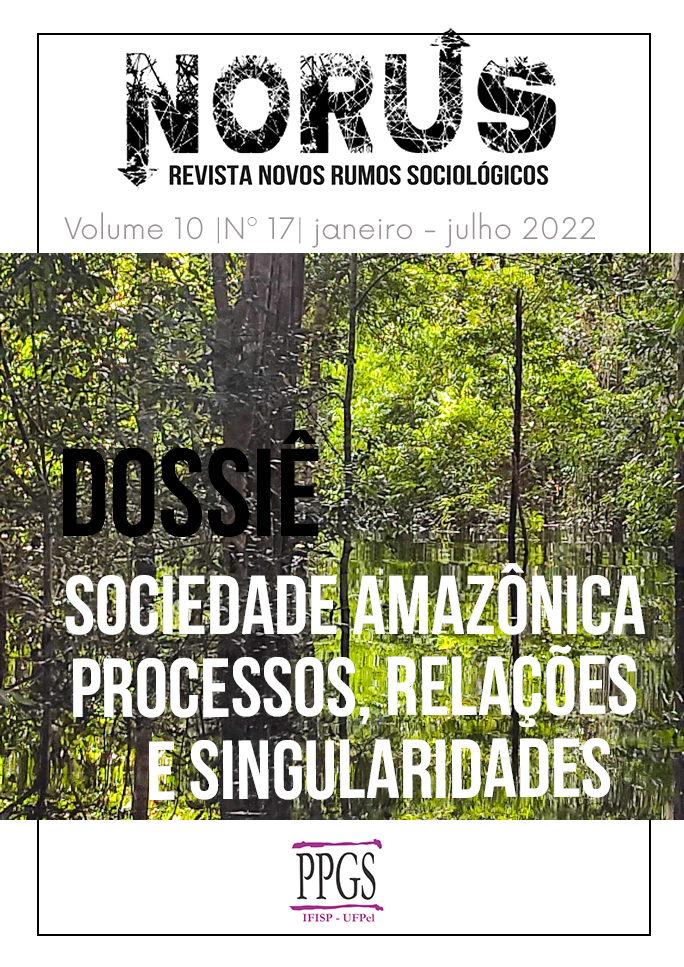Decoloniality and good living
a reflection from the riverside context of the Combu Island
Abstract
Several aspects of our reality reflect the coloniality that persists in our society and reinforces Eurocentric and American standards, including the notion of development. This developmentalist discourse gained strength and was adopted by many countries, which included it in their agendas as a goal to be achieved, as countries deemed underdeveloped or
developing also wanted to enjoy the promised privileges, even if most of their people perish. In view of the atrocities and the failure of said development, Combu Island invites us to reflect on this logic that was imposed on us. Thus, in this text, I seek to present the context of the riverside population that established there with a way of life that differs from that of
continental and urban Belém. This is an anthropological essay of a qualitative and ethnographic nature, making use of bibliographical research and fieldwork carried out from 2010 to 2016, comprising direct and participant observation, semi-structured interviews and informal conversations, which has always proved to be a rich source for understanding the
worldview and local reality. Findings show that when the occupation of the island began to consolidate, the main reason was the search for a better life, closer to the rhythm of nature
as opposed to the “modern” rhythm. The way of life built on Combu Island, averse to that of the continent's development, since it reflects a counter-hegemonic position by the communities, revealing a concept of local Good Living, even though they do not use the term itself.
communities, revealing a concept of local Good Living, even though they do not use the term itself.


